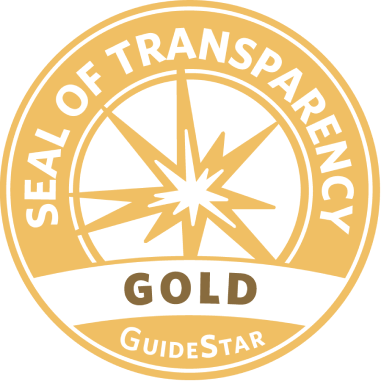Abuse, in any form, leaves deep scars that can linger for years, shaping how survivors view themselves, others, and the world around them. Among the many challenges they face, rebuilding trust—both in others and in themselves—is often the most difficult. Trust, once shattered by abuse, can feel impossible to repair, yet it is an essential part of healing. At the Omid Foundation, we are dedicated to empowering adolescent girls and young women to rebuild their confidence and trust, helping them reclaim their lives after abuse.
This article explores the complex relationship between trauma and trust, the barriers to rebuilding confidence, and the steps survivors can take to regain a sense of security, self-worth, and empowerment.
The Impact of Abuse on Trust
Abuse—whether physical, emotional, sexual, or psychological—violates a person’s boundaries and sense of safety. It often comes from those closest to the survivor, such as family members, partners, or authority figures. This betrayal creates a ripple effect, undermining trust in:
- Others: Survivors may struggle to believe that people have good intentions or that they can rely on others for support.
- Themselves: Abuse often erodes self-esteem, leaving survivors doubting their own judgment, decisions, and worth.
- The World: After experiencing abuse, the world may feel unsafe and unpredictable, heightening feelings of fear and anxiety.
These broken bonds of trust create a barrier to healing, as survivors may isolate themselves, avoid relationships, or develop coping mechanisms that prevent meaningful connections.
The Role of Confidence in Healing
Confidence and trust are closely linked. A lack of trust in oneself can hinder a survivor’s ability to set boundaries, advocate for their needs, or take risks in rebuilding their lives. Conversely, as confidence grows, so does the capacity to trust others and engage in healthy, fulfilling relationships.
At the Omid Foundation, we emphasize the importance of nurturing self-confidence as a cornerstone of recovery. By empowering young women to recognize their strengths, set goals, and take control of their futures, we help them rebuild trust in themselves and their potential.
Barriers to Rebuilding Trust and Confidence
Rebuilding trust after abuse is a gradual process, often complicated by several barriers:
- Fear of Repetition
Survivors may fear being hurt again, making it difficult to open up or form new relationships.
- Shame and Self-Blame
Abusers often manipulate their victims into believing the abuse was their fault, leading to feelings of shame and self-doubt.
- Isolation
Many survivors withdraw from social interactions to protect themselves, but this isolation can perpetuate feelings of distrust and loneliness.
- Stigma and Cultural Norms
In some cultures, survivors of abuse face judgment or rejection, making it even harder to seek help or share their experiences.
- Lack of Support
Without a strong support system, survivors may struggle to navigate the complexities of healing and rebuilding trust.
Steps to Rebuilding Confidence and Trust
The journey to rebuilding trust and confidence after abuse is deeply personal, but there are key steps that can help survivors move forward.
- Acknowledging the Trauma
The first step to healing is recognizing and validating the impact of the abuse. Survivors need to understand that their feelings of mistrust, fear, or low self-esteem are natural responses to their experiences.
At the Omid Foundation, we provide a safe and nonjudgmental environment where young women can share their stories, process their emotions, and begin to understand their trauma.
- Building Self-Awareness
Self-awareness allows survivors to identify their triggers, fears, and coping mechanisms. This understanding is essential for breaking unhealthy patterns and developing new, constructive ways of relating to themselves and others.
Through workshops and counseling, we help young women explore their inner worlds, fostering a sense of clarity and self-understanding.
- Cultivating Self-Compassion
Abuse often leaves survivors with harsh self-criticism and feelings of unworthiness. Cultivating self-compassion involves replacing these negative thoughts with kindness and understanding.
Simple practices such as positive affirmations, journaling, and mindfulness exercises can help survivors develop a more compassionate relationship with themselves.
- Setting Boundaries
Rebuilding trust requires learning to set and enforce healthy boundaries. This includes recognizing personal limits, asserting needs, and identifying relationships that feel safe and supportive.
At the Omid Foundation, we teach young women practical skills for boundary-setting, empowering them to protect their emotional and physical well-being.
- Reconnecting with Others
While building new relationships can be daunting, reconnecting with trustworthy individuals is an essential part of healing. Survivors can start by seeking out supportive friends, family members, or community groups.
Peer support programs, like those offered by the Omid Foundation, provide a safe space for survivors to connect with others who understand their experiences, fostering a sense of belonging and solidarity.
- Seeking Professional Help
Therapists, counselors, and support organizations play a vital role in helping survivors navigate the complexities of trauma and trust. Professional guidance can provide the tools and techniques needed to address deep-seated fears, rebuild confidence, and develop healthy relationships.
The Role of the Omid Foundation
At the Omid Foundation, we are committed to helping young women and girls rebuild their lives after abuse. Our programs focus on three key pillars:
- Emotional Support
Through individual and group therapy, we provide a safe space for survivors to process their trauma, develop self-awareness, and cultivate resilience.
- Life Skills Training
We equip young women with the skills they need to set boundaries, communicate effectively, and navigate relationships with confidence.
- Community Building
By fostering connections among peers and mentors, we create a supportive network that empowers survivors to rebuild trust in themselves and others.
Success Stories
Consider the story of Sara, a young woman who came to the Omid Foundation after enduring years of emotional abuse. Initially withdrawn and distrustful, Sara participated in therapy sessions, life skills workshops, and peer support groups. Over time, she began to rediscover her strengths, set goals, and form meaningful connections with others. Today, Sara is pursuing higher education and serving as a mentor to other young women in similar situations.
Stories like Sara’s highlight the transformative power of support, education, and empowerment in rebuilding trust and confidence.
Moving Forward
Rebuilding trust after abuse is a journey that requires patience, courage, and support. While the process may be challenging, it is also deeply rewarding, offering survivors the opportunity to reclaim their lives and embrace their potential.
At the Omid Foundation, we believe in the resilience of the human spirit and the power of community to heal even the deepest wounds. By fostering trust, confidence, and empowerment, we help young women and girls move beyond their trauma and toward a future filled with hope and possibility.
Through collective action, compassion, and commitment, we can create a world where survivors of abuse feel seen, supported, and empowered to thrive.

